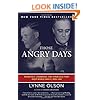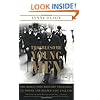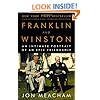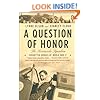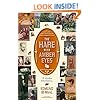
Citizens of London
and over one million other books are available for Amazon Kindle. Learn more


Flip to back
Flip to front

Citizens of London: The Americans Who Stood with Britain in Its Darkest, Finest Hour Paperback – May 3, 2011
See all 16 formats and editions
Hide other formats and editions
| Amazon Price | New from | Used from |
|
MP3 CD, Audiobook, MP3 Audio, Unabridged
"Please retry"
|
$20.01 | $12.50 |
|
Unknown Binding
"Please retry"
|
—
|
$11.66 | $11.67 |

$10.49
FREE Shipping on orders over $35.
In Stock.
Ships from and sold by Amazon.com.
Gift-wrap available.
NO_CONTENT_IN_FEATURE
Start reading Citizens of London on your Kindle in under a minute.
Don't have a Kindle? Get your Kindle here, or download a FREE Kindle Reading App.
Don't have a Kindle? Get your Kindle here, or download a FREE Kindle Reading App.
Browse in Books with Buzz and explore more details on selected titles, including the current pick, "Neil Patrick Harris: Choose Your Own Adventure," an engaging, interactive dive into the versatile actor's life (available in hardcover and Kindle book).
Product Details
Would you like to update product info or give feedback on images?.
|
Editorial Reviews
Amazon.com Review
Amazon Best Books of the Month, February 2010: Citizens of London is the story of the American firebrands who broke rank with popular opinion and stood shoulder-to-shoulder with England during the bleak infancy of World War II. Author Lynne Olson more than lives up to the critical acclaim of her last book, Troublesome Young Men, by exploring the origins of an Anglo-American alliance that helped turn the tide during the most widespread conflict in history. Although other "Yanks" rallied against the hesitancy of their isolationist government before Pearl Harbor, few matched the impact of U.S. ambassador John Gilbert Winant, businessman Averell Harriman, and broadcaster Edward R. Murrow. Each recognized the insidious dangers of Nazi aggression, and with the help of meticulous research, Olson elucidates the challenges they endured to help bridge political and cultural gaps between the United States and Britain. At a time when the English capital was described as "swimming in the full tide of history," Citizens of London echoes Tennyson in its tribute to those who strove, sought, and refused to yield. --Dave Callanan
Olson: I’ve been fascinated with the place and the period ever since my husband, Stan Cloud, and I wrote our first book, The Murrow Boys, about Edward R. Murrow and the correspondents he hired to create CBS News before and during World War II. Several scenes in the book take place in London during the Battle of Britain and the 1940-41 Blitz. In doing research for The Murrow Boys, I got caught up in the story of Britain’s struggle for survival in those early years of the war – and the extraordinary leadership of Winston Churchill and courage of ordinary Britons in waging that fight. I discovered that there were still a number of stories about the period that remained largely unknown and untold, so I decided to tell them myself.
Amazon.com: Had Pearl Harbor not forced America's hand, how much longer could England have lasted against Germany?
Olson: That’s an excellent “what if” question. Churchill, for one, was desperately worried that Britain would be defeated by Germany in 1942 if the United States didn’t enter the war. In the days immediately before Pearl Harbor, he knew that the Japanese were also on the move, and he was afraid they were going to strike at British territory in Asia. If that had happened, his country would have been forced into a two-front war, with no lifeline from the United States – which almost assuredly would have meant the end for Britain. So it’s no wonder than when he heard the news of Pearl Harbor on the night of Dec. 7, 1941, he was euphoric. It meant, as he later wrote, that no matter how many military setbacks lay ahead, “England would live.”
Amazon.com: In contrast to Winant and Murrow, Harriman was a bit of a bourgeois playboy. What made you include him in this book?
Olson: There’s no question that Harriman’s social life was considerably more hectic in London than that of Winant and Murrow. At the same time, however, he was a dogged, extremely hard-working administrator of Lend Lease aid for Britain, who did what he could to speed up the flow of American help to the British and who pressed the Roosevelt administration hard for more vigorous action and more direct involvement in the war. He also carved out for himself quite an influential role as conduit and buffer between Roosevelt, Stalin and Churchill.
I also wanted to include Harriman for another reason – to point up the contrast between his tough-minded pragmatism and the idealism of Winant and Murrow. These three men, I think, reflected the complexity of America and its attitude to the rest of the world at that time. Winant and Murrow, who championed economic and social reform as well as international cooperation, reflected America’s idealistic side. Harriman, who was intent on broadening his own power and influence, as well as that of his country, became an exemplar of U.S. exceptionalism. In the postwar era, it was his world view that, for the most part, dominated American foreign policy.
Amazon.com: You note an almost apathetic Churchill response to American dalliances within his family. Was this a diplomatic necessity or was he simply too focused on the larger picture?
Olson: I’m not sure I would call him “apathetic.” I think that “pragmatic” would be a better word. I should also point out that it’s not an absolute certainty he knew about the affair that occurred between Averell Harriman and Pamela Churchill, the wife of his son, Randolph, which began in 1941. When Randolph later accused his father of condoning adultery under his own roof, Churchill denied any knowledge of what was going on. That being said, I do believe, as did Pamela, that he was aware of what she and Harriman were up to. Churchill loved Randolph, and while I’m sure he was not thrilled about the Pamela/Harriman affair, he knew how important Harriman and the other Americans were to the survival of Britain, and he had no intention of letting personal matters interfere with the national interest. Besides, Pamela proved to be a useful conduit for him and Harriman, passing on to each man information and insights she had found out from the other.
When Pamela took up with Edward R. Murrow later in the war, she was already separated from Randolph, and I doubt that Churchill cared one way or the other. As for the affair between his daughter, Sarah, and John Gilbert Winant, the couple kept their involvement exceptionally discreet. Sarah believed her father knew about it, but he never said anything, and I don’t think he would have minded.
Amazon.com: Talk about the lower-profile "Citizens of London" -- the brave Americans who violated their own country's laws to volunteer for the RAF.
Olson: In the late 1930s, as part of its desperate effort to keep the United States out of war, the American government did, as you note, make it illegal for any U.S. citizen to join the military service of a warring power. But, after Britain declared war on Germany in September 1939, thousands of young Americans disregarded that law and traveled to England to join the British or Canadian armed forces. Unlike the hordes of Yanks who descended on Britain just prior to D-Day, the early U.S. volunteers became an integral part of Britain’s military and society.
The best-known volunteers were those who joined the Royal Air Force. Seven U.S. citizens were counted among “The Few” – the celebrated band of RAF pilots who, in their Hurricanes and Spitfires, successfully beat back the Luftwaffe during the Battle of Britain in the summer and fall of 1940. Over the next several months, an additional 300-plus Americans enlisted in the RAF -- so many that they were soon given their own units, called the Eagle Squadrons. Churchill, who instantly saw what a powerful propaganda tool the American squadrons could be, enthusiastically endorsed the idea.
When the U.S. finally entered the conflict, virtually all the Americans serving in the RAF transferred to the U.S Army Air Forces. Of the 244 pilots who flew in the Eagle Squadrons, more than 40 per cent did not survive the war. --This text refers to an out of print or unavailable edition of this title.
Exclusive Q&A with Lynne Olson
Amazon.com: Your last three books (Citizens of London, Troublesome Young Men, and A Question of Honor) have focused on England during the late 1930's/early 1940's. As a historian, what draws you to this period?Olson: I’ve been fascinated with the place and the period ever since my husband, Stan Cloud, and I wrote our first book, The Murrow Boys, about Edward R. Murrow and the correspondents he hired to create CBS News before and during World War II. Several scenes in the book take place in London during the Battle of Britain and the 1940-41 Blitz. In doing research for The Murrow Boys, I got caught up in the story of Britain’s struggle for survival in those early years of the war – and the extraordinary leadership of Winston Churchill and courage of ordinary Britons in waging that fight. I discovered that there were still a number of stories about the period that remained largely unknown and untold, so I decided to tell them myself.
Amazon.com: Had Pearl Harbor not forced America's hand, how much longer could England have lasted against Germany?
Olson: That’s an excellent “what if” question. Churchill, for one, was desperately worried that Britain would be defeated by Germany in 1942 if the United States didn’t enter the war. In the days immediately before Pearl Harbor, he knew that the Japanese were also on the move, and he was afraid they were going to strike at British territory in Asia. If that had happened, his country would have been forced into a two-front war, with no lifeline from the United States – which almost assuredly would have meant the end for Britain. So it’s no wonder than when he heard the news of Pearl Harbor on the night of Dec. 7, 1941, he was euphoric. It meant, as he later wrote, that no matter how many military setbacks lay ahead, “England would live.”
Amazon.com: In contrast to Winant and Murrow, Harriman was a bit of a bourgeois playboy. What made you include him in this book?
Olson: There’s no question that Harriman’s social life was considerably more hectic in London than that of Winant and Murrow. At the same time, however, he was a dogged, extremely hard-working administrator of Lend Lease aid for Britain, who did what he could to speed up the flow of American help to the British and who pressed the Roosevelt administration hard for more vigorous action and more direct involvement in the war. He also carved out for himself quite an influential role as conduit and buffer between Roosevelt, Stalin and Churchill.
I also wanted to include Harriman for another reason – to point up the contrast between his tough-minded pragmatism and the idealism of Winant and Murrow. These three men, I think, reflected the complexity of America and its attitude to the rest of the world at that time. Winant and Murrow, who championed economic and social reform as well as international cooperation, reflected America’s idealistic side. Harriman, who was intent on broadening his own power and influence, as well as that of his country, became an exemplar of U.S. exceptionalism. In the postwar era, it was his world view that, for the most part, dominated American foreign policy.
Amazon.com: You note an almost apathetic Churchill response to American dalliances within his family. Was this a diplomatic necessity or was he simply too focused on the larger picture?
Olson: I’m not sure I would call him “apathetic.” I think that “pragmatic” would be a better word. I should also point out that it’s not an absolute certainty he knew about the affair that occurred between Averell Harriman and Pamela Churchill, the wife of his son, Randolph, which began in 1941. When Randolph later accused his father of condoning adultery under his own roof, Churchill denied any knowledge of what was going on. That being said, I do believe, as did Pamela, that he was aware of what she and Harriman were up to. Churchill loved Randolph, and while I’m sure he was not thrilled about the Pamela/Harriman affair, he knew how important Harriman and the other Americans were to the survival of Britain, and he had no intention of letting personal matters interfere with the national interest. Besides, Pamela proved to be a useful conduit for him and Harriman, passing on to each man information and insights she had found out from the other.
When Pamela took up with Edward R. Murrow later in the war, she was already separated from Randolph, and I doubt that Churchill cared one way or the other. As for the affair between his daughter, Sarah, and John Gilbert Winant, the couple kept their involvement exceptionally discreet. Sarah believed her father knew about it, but he never said anything, and I don’t think he would have minded.
Amazon.com: Talk about the lower-profile "Citizens of London" -- the brave Americans who violated their own country's laws to volunteer for the RAF.
Olson: In the late 1930s, as part of its desperate effort to keep the United States out of war, the American government did, as you note, make it illegal for any U.S. citizen to join the military service of a warring power. But, after Britain declared war on Germany in September 1939, thousands of young Americans disregarded that law and traveled to England to join the British or Canadian armed forces. Unlike the hordes of Yanks who descended on Britain just prior to D-Day, the early U.S. volunteers became an integral part of Britain’s military and society.
The best-known volunteers were those who joined the Royal Air Force. Seven U.S. citizens were counted among “The Few” – the celebrated band of RAF pilots who, in their Hurricanes and Spitfires, successfully beat back the Luftwaffe during the Battle of Britain in the summer and fall of 1940. Over the next several months, an additional 300-plus Americans enlisted in the RAF -- so many that they were soon given their own units, called the Eagle Squadrons. Churchill, who instantly saw what a powerful propaganda tool the American squadrons could be, enthusiastically endorsed the idea.
When the U.S. finally entered the conflict, virtually all the Americans serving in the RAF transferred to the U.S Army Air Forces. Of the 244 pilots who flew in the Eagle Squadrons, more than 40 per cent did not survive the war. --This text refers to an out of print or unavailable edition of this title.
From Publishers Weekly
Starred Review. The Anglo-American alliance in WWII was not inevitable, writes former Baltimore Sun correspondent Olson (Troublesome Young Men). In this ingenious history, he emphasizes the role of three prominent Americans living in London who helped bring it about. Best known was Edward R. Murrow, head of CBS radio's European bureau after 1937. His pioneering live broadcasts during the blitz made him a celebrity, and Olson portrays a man who worked tirelessly to win American support for Britain. Most admirable of the three was John Winant, appointed American ambassador in 1941. A true humanitarian, he skillfully helped craft the British-American alliance. And most amusing was Averell Harriman, beginning a long public service career. In 1941, FDR sent the wealthy, ambitious playboy to London to oversee Lend-Lease aid. He loved the job, but made no personal sacrifices, living a luxurious life as he hobnobbed with world leaders and carried on an affair with Churchill's daughter-in-law. Olson, an insightful historian, contrasts the idealism of Winant and Murrow with the pragmatism of Harriman. But all three men were colorful, larger-than-life figures, and Olson's absorbing narrative does them justice. 16 pages of b&w photos. (Feb.)
Copyright © Reed Business Information, a division of Reed Elsevier Inc. All rights reserved. --This text refers to an out of print or unavailable edition of this title.
Copyright © Reed Business Information, a division of Reed Elsevier Inc. All rights reserved. --This text refers to an out of print or unavailable edition of this title.
More About the Author
Before Lynne Olson began writing books full time, she worked more than ten years as a journalist, including stints as Moscow correspondent for the Associated Press and White House correspondent for the Baltimore Sun. She has written six books of history, including the national bestseller "Citizens of London." Her latest book, "Those Angry Days: Roosevelt, Lindbergh, and America's Fight for World War II," tells the story of the brutal, no-holds-barred debate that raged in America over what its role should be in the Second World War. Olson has won the Christopher Award and has been shortlisted for the Los Angeles Times Book Prize in history. She lives in Washington, D.C. with her husband, Stan Cloud. Visit Lynne Olson at http://lynneolson.com.
Customer Reviews
Most Helpful Customer Reviews
251 of 258 people found the following review helpful
By
Leonard Fleisig
VINE VOICE on January 9, 2010
Format: Hardcover
Vine Customer Review of Free Product
(
What's this?
)
23 Comments
Sending feedback...
It is with no small amount of irony that the words Thomas Paine used to rail against a Britain who had an "army to enforce her tyranny" so aptly describes the aura captured in Lynne Olson's "Citizens of London: The Americans Who Stood With Britain in its Darkest, Finest, Hour." But it is must be no coincidence to Ms. Olson that those few U.S. citizens who did stand with Britain during the dark days of the fall of France, the 57 consecutive nights of the bombing of London (and cities throughout the UK) from September 7, 1940 through May 10, 1941, and the evisceration of British merchant shipping by U-Boats in the North Atlantic richly deserve Paine's view that those "that stand by it now, deserve[s] the love and thanks of man and woman."
In Troublesome Young Men: The Rebels Who Brought Churchill to Power and Helped Save England, Olson told the story of the small group of Conservative MPs who opposed Neville Chamberlain's policy of appeasement toward Hitler's Germany from the mid-1930s until Churchill's accession to power. Olson's focus on a small group of relative unknowns (at least as far as an American audience is concerned) provided a valuable perspective of the era of appeasement and the premiership of Neville Chamberlain. Similarly, in "Citizens of London", Olson focuses on a small group of U.S. citizens resident in the U.K. who saw earlier than their compatriots that Britain's battle would soon be their own and who found it within themselves to do everything possible to aid a nation on the brink of starvation and despair. In so doing she provides valuable perspective on U.S.Read more ›
In Troublesome Young Men: The Rebels Who Brought Churchill to Power and Helped Save England, Olson told the story of the small group of Conservative MPs who opposed Neville Chamberlain's policy of appeasement toward Hitler's Germany from the mid-1930s until Churchill's accession to power. Olson's focus on a small group of relative unknowns (at least as far as an American audience is concerned) provided a valuable perspective of the era of appeasement and the premiership of Neville Chamberlain. Similarly, in "Citizens of London", Olson focuses on a small group of U.S. citizens resident in the U.K. who saw earlier than their compatriots that Britain's battle would soon be their own and who found it within themselves to do everything possible to aid a nation on the brink of starvation and despair. In so doing she provides valuable perspective on U.S.Read more ›
Thank you for your feedback.
If this review is inappropriate, please let us know.
Sorry, we failed to record your vote. Please try again
68 of 72 people found the following review helpful
By
Frank J. Konopka
VINE VOICE on January 10, 2010
Format: Hardcover
Vine Customer Review of Free Product
(
What's this?
)
1 Comment
Sending feedback...
This extremely well-written book details the lives and careers of three Americans, Edward R. Morrow, W. Averell Harriman and John Gilbert Winant, who went to London during the height of Britain's struggle to survive, and details how each man contributed to the forging of the Anglo-American alliance.
Of the three, Winant is by far the most important, as he was the U.S. Ambassador to the Court of St. James and came in almost constant contact with high British officials, including Churchill. In fact, all three become great friends of Churchill and his family, to the extent that each had an affair with one of Churchill's daughters.
London at the time of the Blitz was a city in danger, with bomber attacks almost nightly, and death and destruction all around. The people lived a very precarious lifestyle, with rationing and deprivation on every side. Of course, as with any situation of that type, it seems that only the common people were deprived. The upper classes and the diplomats, officials, and military men had very little deprivation. Thay had access to private clubs and plush hotels, not to mention very filling meals that wreren't available to everyone. They also played "musical beds", even the ones who were already married.
When it comes to the political side of things, FDR does not come off very well. He is seen as a cool and calculating politician, more concerned with how he could rearrange Europe to his taste, and caring nothing for the small countries, such as Poland, which he was very ready to surrender to Stalion's tender mercies. He's a much more venal figure than we usually read about, but it seems to be much truer to the man than the worshipful biographies about him that abound.
There's a lot in this book that I didn't know before, and I enjoyed every page of it. If you are interested in World War II and want to learn something new, I highly recommend this work.
Of the three, Winant is by far the most important, as he was the U.S. Ambassador to the Court of St. James and came in almost constant contact with high British officials, including Churchill. In fact, all three become great friends of Churchill and his family, to the extent that each had an affair with one of Churchill's daughters.
London at the time of the Blitz was a city in danger, with bomber attacks almost nightly, and death and destruction all around. The people lived a very precarious lifestyle, with rationing and deprivation on every side. Of course, as with any situation of that type, it seems that only the common people were deprived. The upper classes and the diplomats, officials, and military men had very little deprivation. Thay had access to private clubs and plush hotels, not to mention very filling meals that wreren't available to everyone. They also played "musical beds", even the ones who were already married.
When it comes to the political side of things, FDR does not come off very well. He is seen as a cool and calculating politician, more concerned with how he could rearrange Europe to his taste, and caring nothing for the small countries, such as Poland, which he was very ready to surrender to Stalion's tender mercies. He's a much more venal figure than we usually read about, but it seems to be much truer to the man than the worshipful biographies about him that abound.
There's a lot in this book that I didn't know before, and I enjoyed every page of it. If you are interested in World War II and want to learn something new, I highly recommend this work.
Thank you for your feedback.
If this review is inappropriate, please let us know.
Sorry, we failed to record your vote. Please try again
55 of 60 people found the following review helpful
By
LA
VINE VOICE on January 10, 2010
Format: Hardcover
Vine Customer Review of Free Product
(
What's this?
)
1 Comment
Sending feedback...
Congrats to Lynne Olson for a wonderful new book on World War II. This book focuses on the relationship between England and the United States during World II. More specifically, it examines the influence of three Americans: Edward R. Murrow, John Gilbert Winant, and Averell Harriman.
The strength of the book is the research. Wow. I don't know how long it took Olsen to finish this book, but I was blown away by her hard work. It doesn't appear that anything escaped her attention.
The writing is also very good. I'm a history buff, but I also want a good story. The content is compelling, and I expect someone will buy the film rights. It's got it all. War, romance, conflict, intrigue, tragedy, heroic actions, and suspense.
Olson also makes real the horror the people of England faced during World War II. Some of the passages are heartbreaking to read.
This a fine effort, and one I will be recommending.
The strength of the book is the research. Wow. I don't know how long it took Olsen to finish this book, but I was blown away by her hard work. It doesn't appear that anything escaped her attention.
The writing is also very good. I'm a history buff, but I also want a good story. The content is compelling, and I expect someone will buy the film rights. It's got it all. War, romance, conflict, intrigue, tragedy, heroic actions, and suspense.
Olson also makes real the horror the people of England faced during World War II. Some of the passages are heartbreaking to read.
This a fine effort, and one I will be recommending.
Thank you for your feedback.
If this review is inappropriate, please let us know.
Sorry, we failed to record your vote. Please try again
21 of 21 people found the following review helpful
By
Jeff
VINE VOICE on January 13, 2010
Format: Hardcover
Vine Customer Review of Free Product
(
What's this?
)
Comment
Sending feedback...
I liked this book a lot, but it really is 3 books in one. It's a 6 star book for how well 2 of them turn out and a 4 star for the other.
The first 40% of the book follows three American's who moved to London and were essential in tying the two countries together: Edward R. Murrow, Averill Harriman, and John Winant, respectively the great CBS radio correspondent, the presidential special envoy on Lend Lease, and the American Ambassador who replaced the wrong-headed Joseph Kennedy. Lynne Olson has done excellent research on this period and she includes interesting (and sometimes saucy) anecdotes about which are very informative.
This part of the book is history writing at its best. She has a wonderful narrative style and she also got a very good editor. This part of the book flies by and is exceptional for its prose and the tale it tells.
The focus then shifts to a host of other characters who also helped on one side or the other and well as tracks Harriman after he was posted to Moscow as ambassador over his strenuous objections. The focus also shifts to telling us more about the progress of the war and the campaigns.
When the secondary characters are interesting, this part of the book is as good as the part referenced above. The section about Tommy Hitchcock who single mindedly drove adoption of the P-51 by the Army Air Force over the objections of senior staff because it had a British engine tells a seldom told tale and tells it very well.
However, the general narrative of the war and all of the squabbles really loses a lot of energy from the first part. This tale has been done before, and done better (see John Keegan's History of World War II as an example.Read more ›
The first 40% of the book follows three American's who moved to London and were essential in tying the two countries together: Edward R. Murrow, Averill Harriman, and John Winant, respectively the great CBS radio correspondent, the presidential special envoy on Lend Lease, and the American Ambassador who replaced the wrong-headed Joseph Kennedy. Lynne Olson has done excellent research on this period and she includes interesting (and sometimes saucy) anecdotes about which are very informative.
This part of the book is history writing at its best. She has a wonderful narrative style and she also got a very good editor. This part of the book flies by and is exceptional for its prose and the tale it tells.
The focus then shifts to a host of other characters who also helped on one side or the other and well as tracks Harriman after he was posted to Moscow as ambassador over his strenuous objections. The focus also shifts to telling us more about the progress of the war and the campaigns.
When the secondary characters are interesting, this part of the book is as good as the part referenced above. The section about Tommy Hitchcock who single mindedly drove adoption of the P-51 by the Army Air Force over the objections of senior staff because it had a British engine tells a seldom told tale and tells it very well.
However, the general narrative of the war and all of the squabbles really loses a lot of energy from the first part. This tale has been done before, and done better (see John Keegan's History of World War II as an example.Read more ›
Thank you for your feedback.
If this review is inappropriate, please let us know.
Sorry, we failed to record your vote. Please try again

